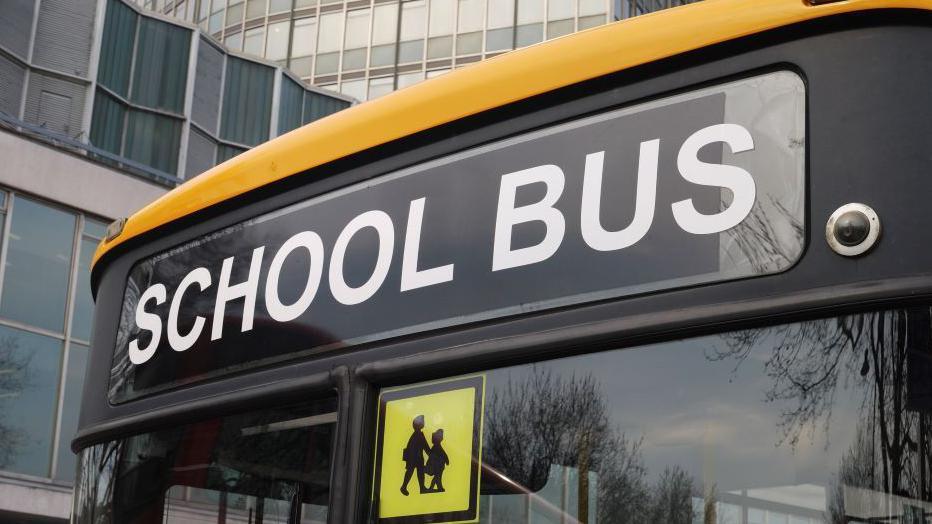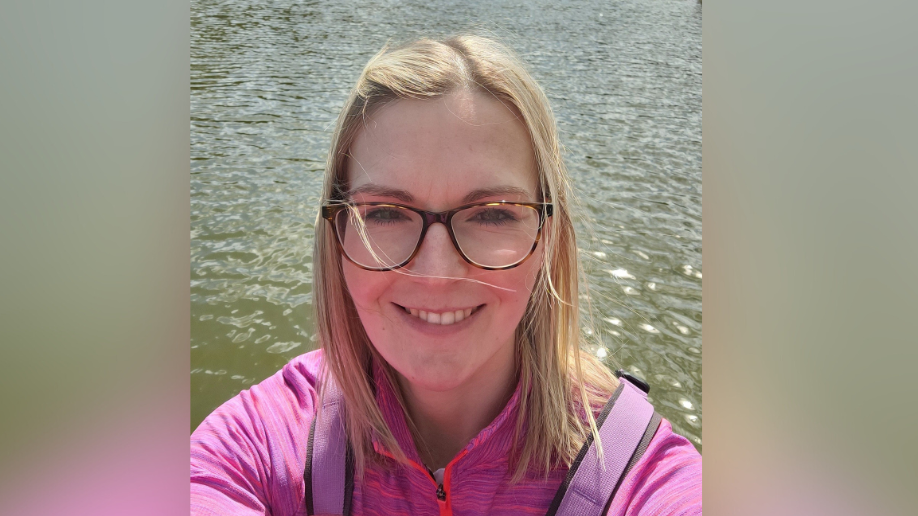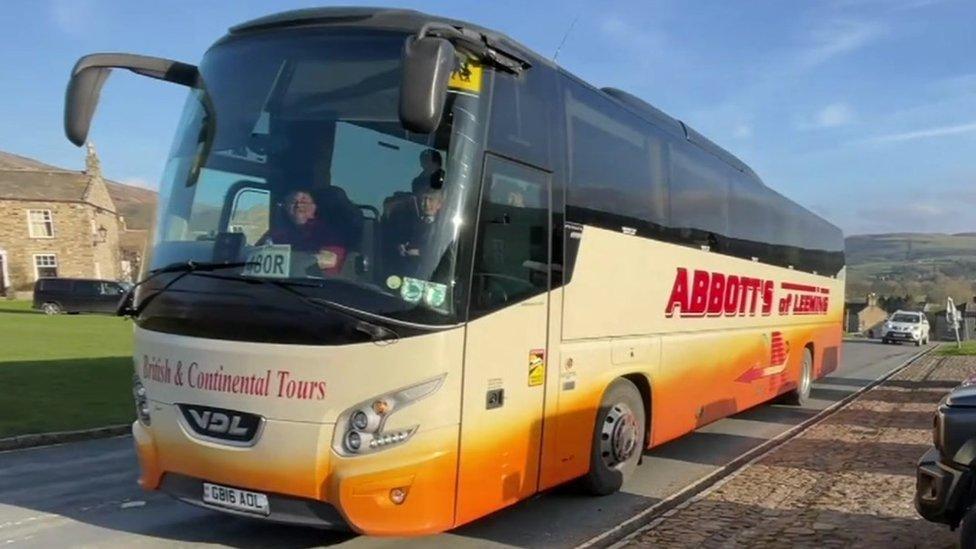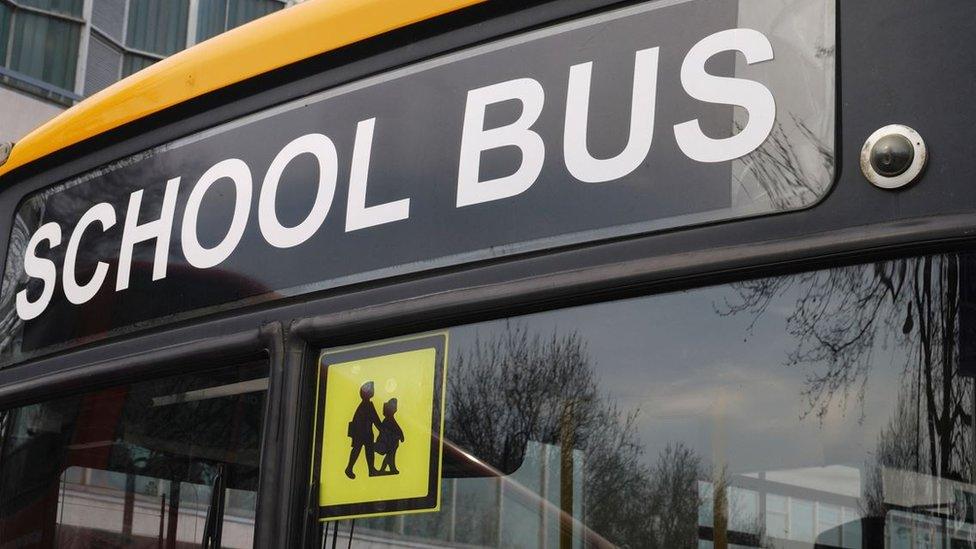Safety risks raised over school bus cutback plan

A change to the free school transport provision could save the council more than £3m
- Published
Parents living in rural areas of North Yorkshire have said a plan to change school bus provision could put their children's safety at risk.
The county council has proposed limits on free transport for under 16s, which would mean journeys would be restricted to the child's nearest school within a catchment area.
The cost-cutting measures, which councillors have been asked to approve, would save the authority more than £3m.
Yet several families told the BBC that their child was unable to attend the closest school to their home and that they would have to pay travel fees.

Linda Rukin from Upper Swaledale said the route to her closest school is unsuitable because of the treacherous conditions in the winter
They include parents from remote areas who claimed routes to the closest school were "treacherous" in winter.
One mother of three children in Upper Swaledale said they could miss out on numerous days of education if the bus could not run in snow.
Linda Rukin lives close to the Tan Hill Inn in the upper reaches of the Dales, but her family's nearest secondary school is over the Cumbria border in Kirby Stephen.
She said she would prefer to send her children to Richmond School, which as it is further away, would mean they were not eligible for free bus travel.
Her eldest daughter would be affected if the change in policy was implemented in September 2025.
“The road to Kirby Stephen is a really tricky route, even in a car in the winter months,” Ms Rukin said.
“At the moment our catchment area includes both Leyburn and Wensleydale schools as well as Richmond School and if one of them decided to go to Richmond School there will obviously be a cost to that.”
North Yorkshire Council said it was down to the contracted transport provider to assess a route for safety and suitability.
The officers' report to be presented at the meeting on 16 July states that the council should change its policy to match the legal requirement to provide free transport to a pupil's nearest school rather than any suitable school.
The recommendations include exemptions for children with second addresses and those attending designated religious schools which serve wider areas.
Hundreds of parents who expressed anger over the proposals during a nine-week consultation have been supported by parish councillors and MPs.
'Deters young families'
Many of the objections stated that young families already faced "challenges" in more isolated rural areas, including around travel to work and other opportunities.
One letter stated: “The communities living and working in the Dales already face many challenges both logistically and financially for school and work.
“Bringing in changes to transport policies like this would completely deter any young families from moving to the area, specifically Upper Swaledale, if their only school options where transport is provided is by travelling over a dangerously high route.”
The proposal emerged earlier this year as the cost of providing home to school transport is expected to increase to £42m a year.
It is the council’s third biggest area of expenditure, behind adult social care and waste management.
North Yorkshire Council said it was lobbying the new government for more funding.
There are 10,500 pupils currently eligible for free transport, around 14% of the total school roll.
The council stated that no child would lose their current travel entitlement unless their personal circumstances changed.
Ahead of the meeting, the council’s executive member for education, learning and skills, Councillor Annabel Wilkinson, said:
“We understand the reservations around transporting children and young people to schools, and concerns about costs from parents and carers who may have children attending different schools.”
The authority’s assistant director for education and skills, Amanda Newbold, added:
“The review of the home to school travel policy does not directly affect where children go to school – that is still the choice of the parent or carer."
Related topics
- Published18 March 2024

- Published23 January 2024
